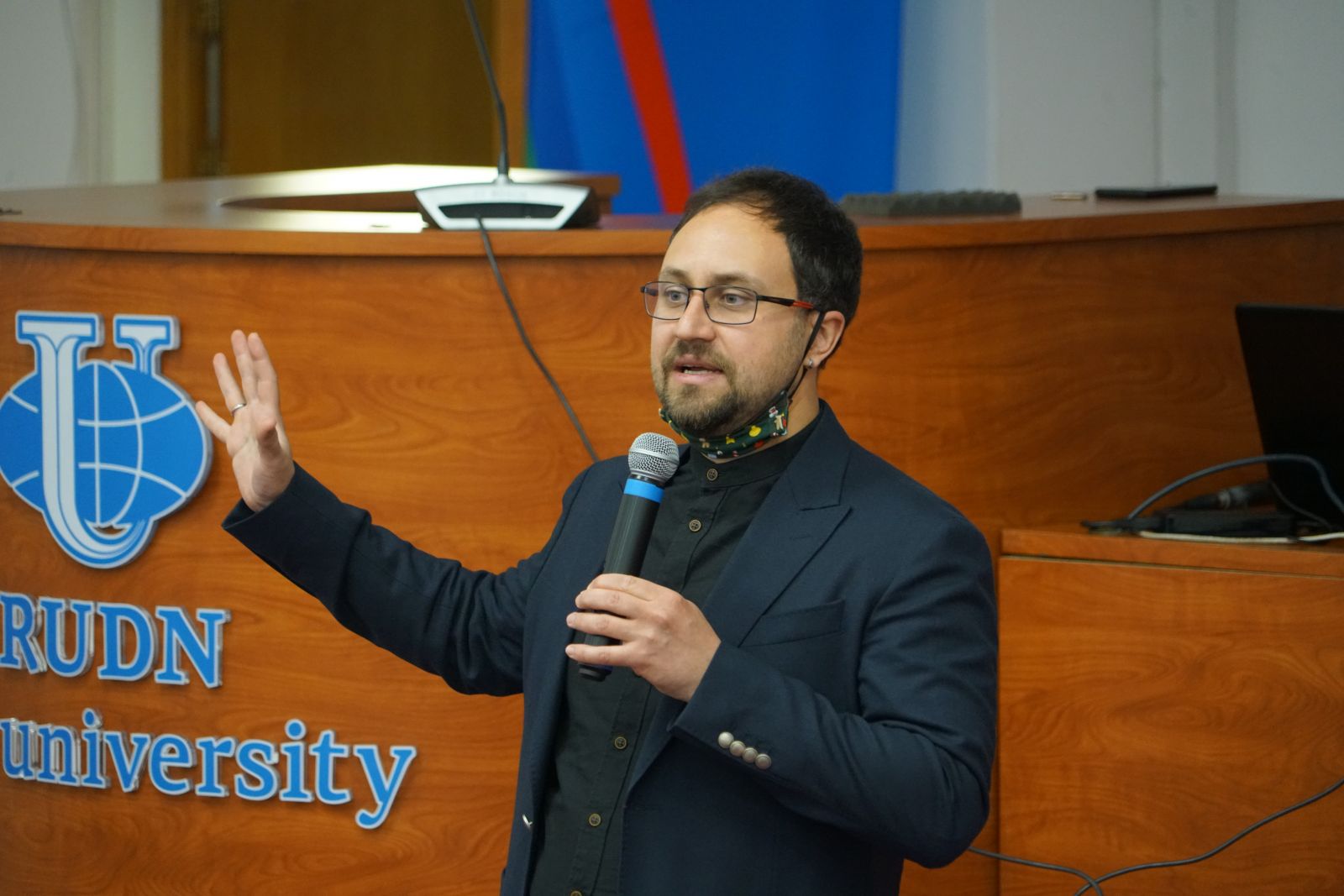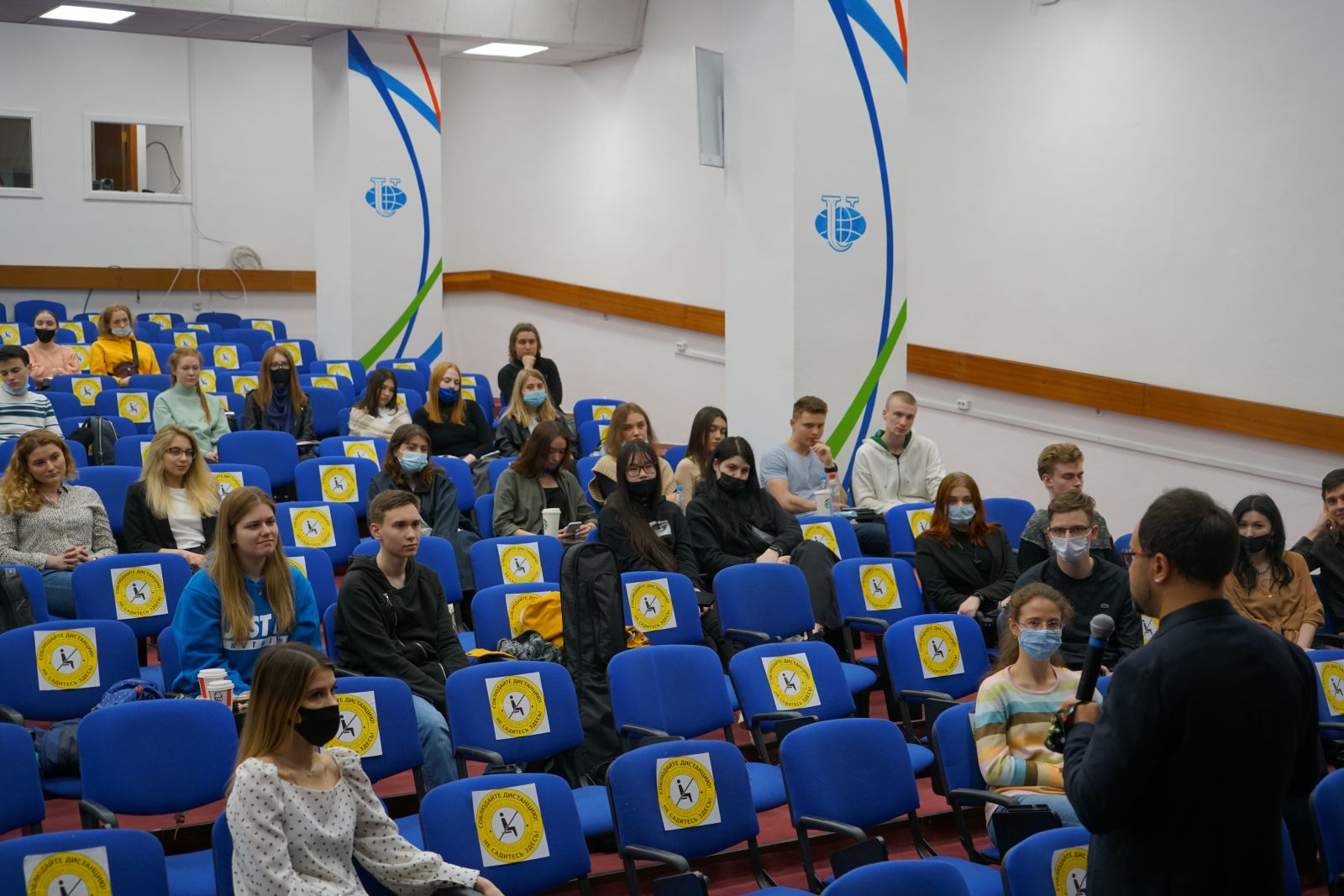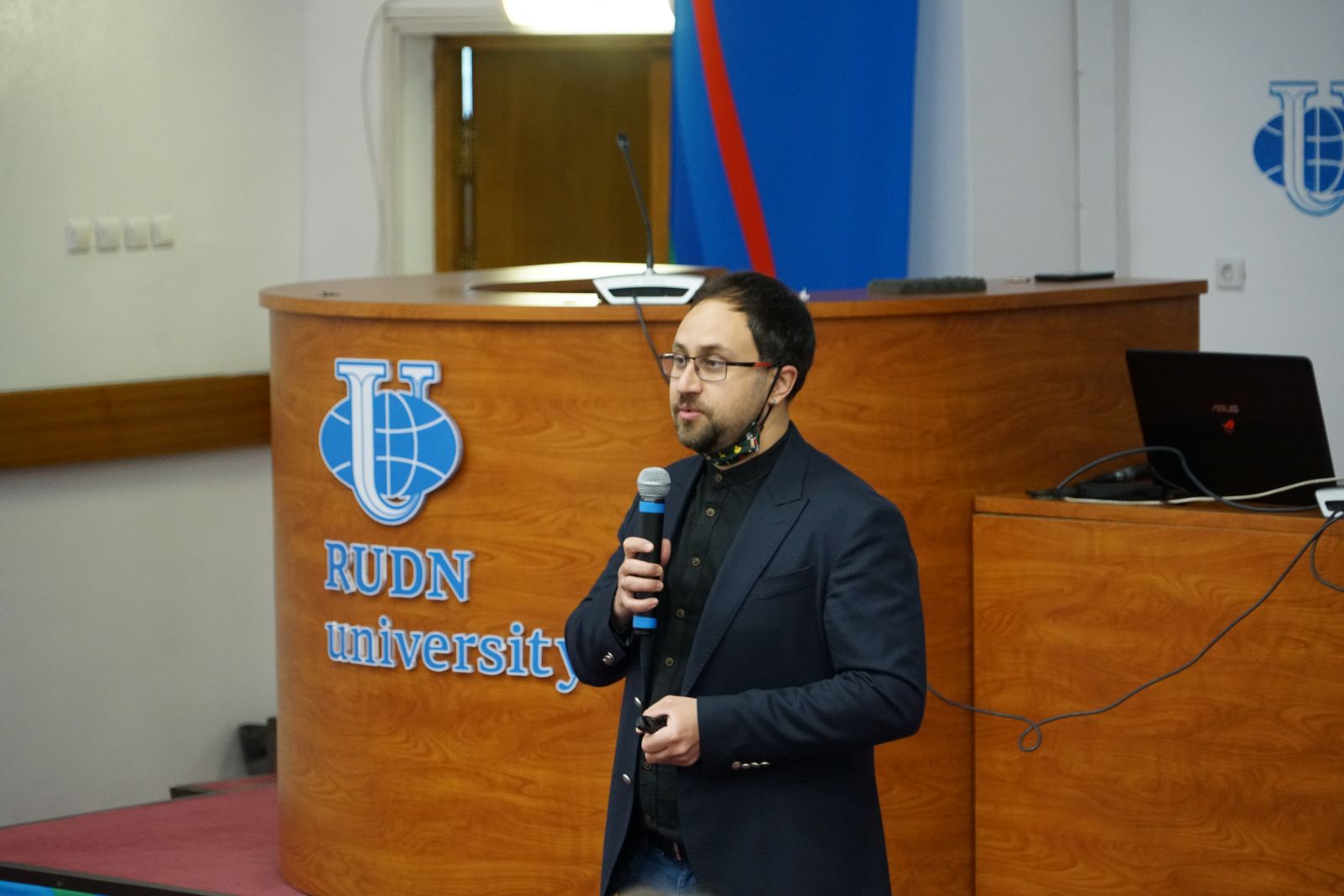Don't confuse stress with overwork and fatigue
Evgeny Lazarev noted that earlier patients of the clinic were people over 35-40 years old, and now they are younger.
“In 10-15 years, you will rule this world and, perhaps, make it a better place. Already think of yourself as a kind of corporation. Each of you is a small or medium-sized company. Everyone has one major resource that cannot be recovered — your health and body. On the one hand, it is a liquid asset. On the other hand, this resource practically does not give interest on the deposit. At the same time, it determines your behavior and where you will find yourself tomorrow,” said Evgeny Lazarev, Head of the international department of the MEDSI group of companies.
He explained the mechanisms of the effect of stress on human health. In the African savannah, when a herd of antelopes is grazing, a lion can attack them at any second. But antelopes don’t live under constant stress. Once a lion appears — you feel stress and you have to run. No lion — no stress. But animals have only objective thinking, and humans also have abstract thinking.
“Humans are much more complicated. We can make up stress and live under this stress for a long time. Our head creates an image of danger and triggers the same reactions as if you feel the fear in reality. These fears are not only physical threats, but also an untimely paid mortgage, loan debts, worries about a potential pregnancy, and many others that trigger a fairly strong stress reaction,” noted Evgeny Lazarev.
It is important to develop methods of dealing with stress and interacting with your body when you are young and are still developing habits, and ways of perceiving and studying information. Your body requires constant care: it needs regular good food, sleep and rest, it also needs lots of exercises, while the brain wants challenging tasks.
The first one to use the word “stress” was Hans Selye, a Canadian pathologist and endocrinologist, but it was the American psychophysiologist and physiologist Walter Cannon, who introduced the concept of “stress”. He was the first to suggest a “fight-or-flight” response.
There are 3 types of stress:
- Physical stress. What makes our body adapt (temperature, physical damage and lack of sleep).
- Emotional stress. Can be experienced by both people and animals. Triggered by emotional load (for example when somebody yells at you).
- Psychological. Caused by negative experiences like negative people’s judgement.
Don’t confuse stress with overwork and fatigue — here rest can help. If you are tired, get some sleep, exhausted — go on vacation.
Stress is triggered by a number of conditions:
- Lack of movement. Stress comes when a person is in a confined space or when there is no opportunity to move or travel.
- Deadlines. An urgent task is stress.
- Violation of ecological rhythms. Stress is caused by lack of sleep, hunger, and insufficient rest.
Therefore, for example, after classes don’t get glued to your smartphone but go for a walk and get some fresh air. If you have strict project deadlines, try negotiating for more convenient schedules.
The worst problem is that stress takes a lot of energy and exhausts the body. Hans Selye assumed that energy is limited and gradually runs out. Over time, scientists came to the conclusion that energy resources can be replenished.
“The body always gives a hint that you have a problem, everything hurts for a reason. We get sick because of information noise and not listening to ourselves. Stress itself is not the cause of illness. Stress leads to the depletion of the body,” said Evgeny Lazarev.
Often, the human body cannot control responses to stress. For example, at an exam, students lose attention because of stress that’s why exams are not about creativity. There is an unspoken rule: to make a man’s mind work — raise your voice, while a woman’s — say something nice to her.
Evgeny Lazarev advised students who are going for an interview with an HR to try on the role of a “scout”: “You are going to find out the work conditions and agree on how much your work costs.”
For reference
- April 17-24, at the “Week of Success of Sistema JSFC and RUDN University”, 130 students of the Peoples’ Friendship University of Russia met the experts of Sistema JSFC and learned about the intricacies of the work of top managers in the field of HR, design, investment and stress management.
- In 2020, Sistema JSFC and RUDN University announced launching comprehensive collaboration in the field of telecommunications, agronomy, medicine, pharmaceuticals and career tracks elaboration. Joint projects are launched with 5 assets of Sistema: PJSC MTS, JSC Medsi, LLC Aeromax, STEPPE Agroholding, and the pharmaceutical holding of the Corporation.
- Sistema is a major private investor into the real sector of economy. The corporation’s diversified portfolio of assets mainly consists of Russian companies representing various industries, including telecommunications, retail, wood processing, agriculture high-tech, financial services, real estate, medicine and hospitality.
Why does an ecologist or marketer need Chinese? What specialists do modern employers need? RUDN University environmental students studying under the “Translator” program attended a master class where they learned about the benefits of learning the Chinese language.
October 14, the ceremony of presenting the oldest legal award took place. Among those, to whom fortune smiled was Oleg Yastrebov, Rector of RUDN University, who became a laureate in the “Traditions and Education” category.
100 students from 29 countries took part in the master class of Aisylu Yanturina Darles, where the career consultant on UN internships and employment spoke about international internships. The participants discussed what a young specialist should write if there is no work experience, and where to look for vacancies in large projects.
.jpeg)


